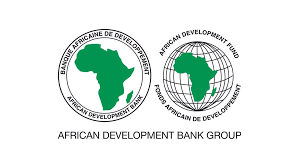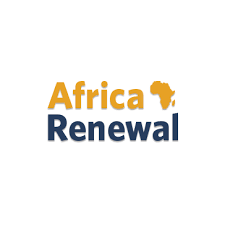Morocco: African Development Bank Group strengthens its technical assistance to boost water resources

Financing
Approval Date: 21 December 2022
Project name: Technical Assistance for Dam Design and Interconnection Studies
Amount: €201,000
________________________________________
Objectives
The grant, extended through the Bank's Technical Assistance Fund for Middle-Income Countries, will support technical assistance to the Government of Morocco for the design of dams, river development and inter-basin interconnection studies. The beneficiary institution is the Directorate of Hydraulic Development of the Ministry of Equipment and Water.
Unlock the impact potential of agricultural SMEs in Africa, experts urge at Dakar 2 Food summit

Global experts meeting during a panel session at the second international summit on food production in Dakar called for accelerated avenues to close the financial gap in agriculture and address barriers to the growing finance market for agricultural Small and Medium Enterprises (SMEs).
The discussions come in the wake of supply chain disruptions as a result of COVID-19 pandemic, the war in Ukraine, rising inflation, high commodity prices that have led to increased food and nutrition insecurity.
The session, titled, Closing the Financing Gap was moderated by Alan Kasujja, Presenter, BBC World Service.
Africa: Economic growth decelerates before full recovery from pandemic-led contraction

Economic growth in Africa is forecast to slow down this year while the level of economic activities remains below the pre-pandemic level, according to the United Nations World Economic Situation and Prospects (WESP) 2023, which was launched today.
A series of severe and mutually reinforcing shocks — the COVID-19 pandemic, the war in Ukraine and resulting food and energy crises, surging inflation, debt tightening, as well as the climate emergency — battered the world economy in 2022. Against this backdrop, world output growth is projected to decelerate from an estimated 3.0 per cent in 2022 to 1.9 per cent in 2023, marking one of the lowest growth rates in recent decades.
The report presents a gloomy and uncertain economic outlook for the near term. Global growth is forecast to moderately pick up to 2.7 per cent in 2024 as some of the headwinds will begin to subside. However, this is highly dependent on the pace and sequence of further monetary tightening, the course and consequences of the war in Ukraine, and the possibility of further supply-chain disruptions.
The tepid global economic prospects also threaten the achievement of the the 17 Sustainable Development Goals (SDGs), whose mid-point review lies ahead at the 2023 SDG Summit in September.
Quality education in Africa: EU launches €100 million Regional Teachers' Initiative

Commissioner for International Partnerships Jutta Urpilainen launched today a Regional Teachers' Initiative in Africa and for Africa, a €100 million investment from the EU budget in empowering the world's fastest growing youth population through quality education. This flagship initiative under the EU–Africa Global Gateway Investment Package aims to accelerate the training of teachers for Sub-Saharan Africa, responding to the need for 15 million new qualified teachers for Africa by 2030. The initiative will contribute to regional and national objectives by supporting and complementing national education and teacher reforms, offer opportunities for cross-country collaboration, partnerships, and peer learning in the region and with Europe.
Global Gateway: EU partners with South Africa to invest €280 million in its Just and Green Recovery

As Team Europe, the EU and its Member States will invest more than €280 million in grants in South Africa, including €87.75 million from the EU budget, to support policy reforms on green recovery, unlock green investments and build a knowledge-based transition in the framework of the Just and Green Recovery Team Europe Initiative for South Africa launched today in Pretoria as part of Global Gateway.
Through this partnership with South Africa, the Just and Green Recovery Team Europe Initiative will support the country in achieving its national goal to tackle the country's pressing socio-economic challenges through policy dialogue, facilitating investment, including for public infrastructure and to unlock a sustainable, biodiversity friendly and circular economy and combat climate change.
Global Gateway: Commissioners Breton and Urpilainen visit Namibia to take forward partnerships in green hydrogen and sustainable raw materials

On 24-25 January, Commissioner for the Internal Market, Thierry Breton, and Commissioner for International Partnerships, Jutta Urpilainen, will visit Southern Africa to enhance ties between the EU and Namibia and mark the 33rd anniversary of the EU-Namibia Partnership.
During the joint visit, which is a demonstration of EU’s consistent and comprehensive engagement with partners in Africa, both Commissioners will exchange views with President Geingob, as well as Deputy Prime Minister Nandi-Ndeitwah, on bilateral, regional and multilateral issues of shared interest. The focus of the visit will be to enhance cooperation under Global Gateway, the EU’s positive offer to partners to deliver trusted and sustainable connections with partner countries. The visit will be an opportunity to discuss how to take forward the Memorandum of Understanding on the EU-Namibia Partnership on Sustainable Raw Materials and Renewable Hydrogen signed by President von der Leyen and President Geingob at COP27. This partnership will support both Namibia and the EU’s climate ambitions and bring added value to the local economy.
Aid for Trade: EU remains among the major global providers with €23 billion

In 2020, coinciding with the beginning of the pandemic, which had a dramatic impact on trade, the EU and its Member States collectively invested €23 billion in Aid for Trade. A wide variety of EU Aid for Trade programmes have been put in place to assist partner countries in facing the recovery from the COVID-19.
“Trade is a powerful tool to generate economic growth and reduce inequalities. Aid for Trade has proved efficient to help recovery from the many shocks in partner countries. Through Global Gateway, the European Union boosts smart, clean and secure links and connections with and between its partners. Our Aid for Trade is crucial in this effort”, said Commissioner Jutta Urpilainen.
EU collective Aid for Trade reached its highest levelin 2020.The 2022 progress Report confirms the EU and its Member States as one of the main world's leading Aid for Trade providers, with €23 billion invested in 2020, a growing figure compared to the €17.9 billion of 2019. It represents 47 % of all Aid for Trade from bilateral and multilateral sources. The main part of the EU collective Aid for Trade goes to Africa, followed by Asia. Between 2011 and 2020, EU Aid for Trade increased by 60%, namely from € €14 to €23 billion.
African Development Bank approves $40 million Trade Finance Package to Bank One Limited Mauritius

The Board of Directors of the African Development Bank Group has approved a $40 million Trade Finance Package in favor of Bank One Limited of Mauritius. The financial package comprises a $25 million Risk Participation Agreement and a $15 million Transaction Guarantee.
The transaction guarantee facility will allow the Bank to provide, on a transaction basis, up to 100% guarantee to confirming banks for the non-payment risk arising from the confirmation of trade finance instruments issued by Bank One. On the other hand, the risk participation agreement will provide up to 50% guarantee cover on a portfolio basis to support trade finance transactions originated by issuing banks in regional member countries. This financial support is expected to help Bank One increase its capacity to support the trade finance needs of key sectors, including Small- and Medium–sized Enterprises (SMEs) and local corporates in Mauritius and across the continent.
Morocco: African Development Bank commits €199 million to cereal production

The Board of Directors of the African Development Bank approved on Wednesday, 28 September 2022, in Abidjan a €199 million loan to finance Morocco’s Competitive and Resilient Cereal Development Support Program (PADCRC).
This new operation forms part of the African Emergency Food Production Facility to help boost food security, nutrition, and resilience across Africa.
The program will help reduce Morocco’s cereal imports, focusing on improving productivity and the resilience of cereal production to climate change. It also provides for structural reforms that will lead to more efficient and resilient production systems.
Côte d’Ivoire: African Development Bank signs grant agreement for $400,000 with Caisse des dépôts to support micro-enterprises.

The African Development Bank has signed a grant agreement for $400,000 with the Caisse des dépôts et consignations of Côte d'Ivoire (CDC-CI). The funds will support CDC-CI to accelerate its activities to assist Ivorian small and medium-sized enterprises. The agreement was signed on 27 September 2022 in Abidjan. CDC-CI is a State bank that handles official deposits.
The grant will be sourced from the Capital Markets Development Trust Fund, a multi-donor fund administered by the African Development Bank.
The financing will enable CDC-CI to promote entrepreneurial initiatives for women and youth, supporting small and medium-sized enterprises in Côte d'Ivoire to recover from the impacts of the Covid-19 pandemic. CDC-CI will do this through - among other things - the development of a strategy document that defines the scope of its intervention to assist SMEs; this will then be supported by a feasibility study to identify, prepare, and validate options for implementation. As part of the capacity building, staff of the CDC-CI will also receive training and tools.




